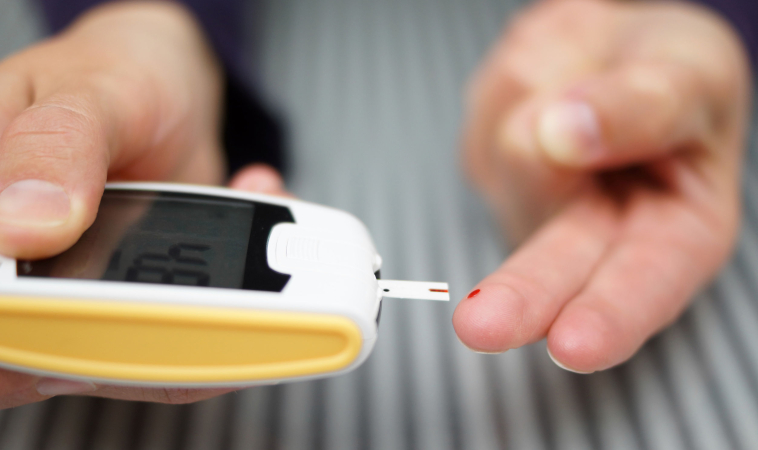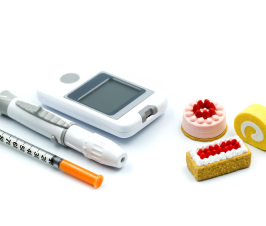A study reported in the journal Cell Metabolism on April 30 adds to the evidence that people with type 2 diabetes (T2D) are at greater risk of a poor outcome should they become infected with the virus that causes COVID-19. But there is some encouraging news: people with T2D whose blood sugar is well controlled fare much better than those with more poorly controlled blood sugar.
Those living with type 2 diabetes (T2D) at greater risk of a poor outcome should they become infected with the virus that causes COVID-19, study finds
“We were surprised to see such favourable outcomes in well-controlled blood glucose group among patients with COVID-19 and pre-existing type 2 diabetes,” says senior author Hongliang Li of Renmin Hospital of Wuhan University. “Considering that people with diabetes had much higher risk for death and various complications, and there are no specific drugs for COVID-19, our findings indicate that controlling blood glucose well may act as an effective auxiliary approach to improve the prognosis of patients with COVID-19 and pre-existing diabetes.”
More than 500 million people around the world have T2D
More than 500 million people around the world have T2D. While it was clear that people with this condition fare worse with COVID-19, Li and colleagues wondered what role a person’s blood glucose control might have on those outcomes.
To find out, they conducted a retrospective longitudinal multi-centered study including 7,337 confirmed COVID-19 cases enrolled among 19 hospitals in Hubei Province, China. Of those, 952 people had T2D and the other 6,385 did not. Among those with diabetes, 282 had well-controlled blood glucose; the other 528 did not.
Those with well-controlled blood sugar and COVID-19 were less likely to die
The data showed that people admitted to the hospital with COVID-19 and T2D required more medical interventions. Despite those interventions, they also had significantly higher mortality (7.8% vs. 2.7%) as well as a greater incidence of multiple organ injury.
However, those with well-controlled blood sugar and COVID-19 were less likely to die than those whose blood glucose was poorly controlled. Meanwhile, those with well-managed T2D also received less of other medical interventions including supplemental oxygen and/or ventilation, and had fewer health complications.
The researchers say the new findings offer three main messages for people with diabetes:
- People with diabetes have a higher risk to die from COVID-19 and develop more severe complications after infection. Therefore, they should take extra precautions to avoid becoming infected.
- People with diabetes should take extra care to keep their blood sugar under good control during the pandemic.
- Once infected, patients with diabetes should have their blood glucose level controlled to maintain it in the right range, in addition to any other needed treatments.
Researchers will continue to study the relationship between T2D and COVID-19 outcomes
The researchers say they will continue to study the relationship between T2D and COVID-19 outcomes. The hope is to learn more about the underlying biology that is leading to poorer outcomes for people with T2D and high blood sugar.
This work was supported by grants from the National Key R&D Program of China, the National Science Foundation of China, the Major Research Plan of the National Natural Science Foundation of China, the Hubei Science and Technology Support Project, and Medical Flight Plan of Wuhan University.
1. Lihua Zhu, Zhi-Gang She, Xu Cheng, Juan-Juan Qin, Xiao-Jing Zhang, Jingjing Cai, Fang Lei, Haitao Wang, Jing Xie, Wenxin Wang, Haomiao Li, Peng Zhang, Xiaohui Song, Xi Chen, Mei Xiang, Chaozheng Zhang, Liangjie Bai, Da Xiang, Ming-Ming Chen, Yanqiong Liu, Youqin Yan, Mingyu Liu, Weiming Mao, Jinjing Zou, Liming Liu, Guohua Chen, Pengcheng Luo, Bing Xiao, Changjiang Zhang, Zixiong Zhang, Zhigang Lu, Junhai Wang, Haofeng Lu, Xigang Xia, Daihong Wang, Xiaofeng Liao, Gang Peng, Ping Ye, Jun Yang, Yufeng Yuan, Xiaodong Huang, Jiao Guo, Bing-Hong Zhang, Hongliang Li. Association of Blood Glucose Control and Outcomes in Patients with COVID-19 and Pre-existing Type 2 Diabetes. Cell Metabolism, 2020; DOI: 10.1016/j.cmet.2020.04.021

Razi Berry is the founder and publisher of the journal Naturopathic Doctor News & Review, which has been in print since 2005, and the premier consumer-faced website of naturopathic medicine, NaturalPath. She is the host of The Love is Medicine Project docuseries, The Natural Cancer Prevention Summit, The Heart Revolution-Heal, Empower and Follow Your Heart, and the popular 10-week Sugar Free Summer program. From a near death experience as a young girl that healed her failing heart, to later overcoming infertility and chronic fatigue syndrome and fibromyalgia through naturopathic medicine, Razi has lived the mind/body healing paradigm. Her projects uniquely capture the tradition and philosophy of naturopathy: The healing power of nature, the vital life force in every living thing and the undeniable role that science and mind/body medicine have in creating health and overcoming dis-ease. You can follow Razi on social media: Facebook at Razi Berry, Instagram at Razi.Berry and join the Love is Medicine group to explore the convergence of love and health. Look for more, and listen to more Love is Medicine podcast episodes here.

















